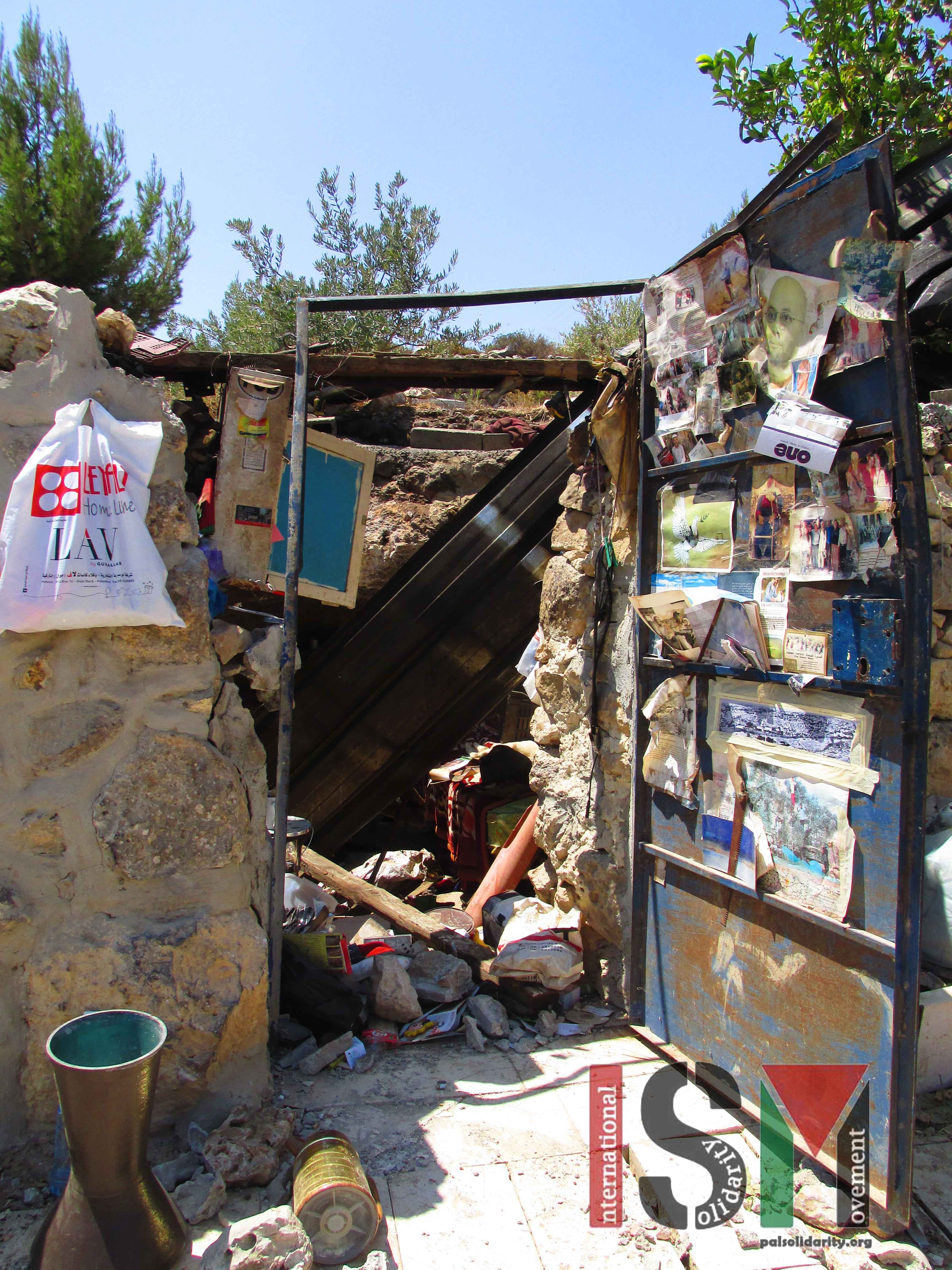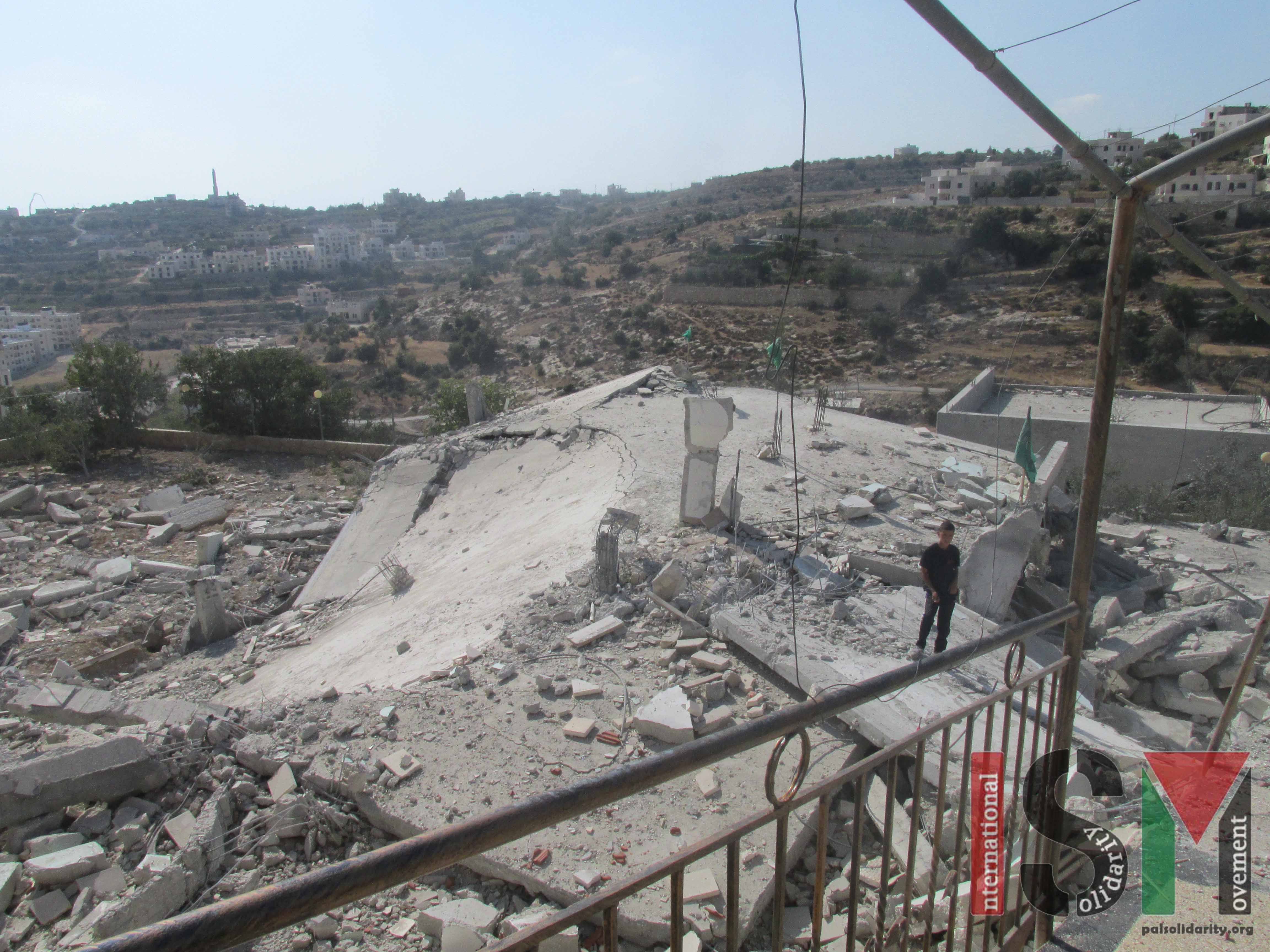Category: Reports
-
VIDEO: 15 tear gas grenades and 5 stun grenades fired at schoolchildren
25th August 2014 | International Solidarity Movement | Hebron, Occupied Palestine Today in al-Khalil (Hebron), Israeli forces fired 15 tear gas grenades and canisters, as well as five stun grenades at children as they waited to go to school. Each morning and afternoon the children of al-Khalil, some as young as four-years-old, are forced to cross…
-
Palestinians and ISM’ers clean up after demolition of Palestinian home
20th August 2014 | International Solidarity Movement, Khalil team | al-Walja, Occupied Palestine At 10am on the 18th of August in al-Walja, north of Bethlehem, the Israeli army demolished the residence of a Palestinian man. The man was alone on his land when the solders arrived with a bulldozer. The soldiers stated that they had a court…
-
Three homes destroyed in Hebron
19th August 2014 | International Solidarity Movement, Khalil team | Hebron, Occupied Palestine Yesterday, the Israeli army demolished the homes of three Palestinian families in al-Khalil (Hebron). At around 11pm on August 17th, a large Israeli military presence began to accumulate in the area of Daersat Alser where the homes of Abu Eisha and Marwan…



